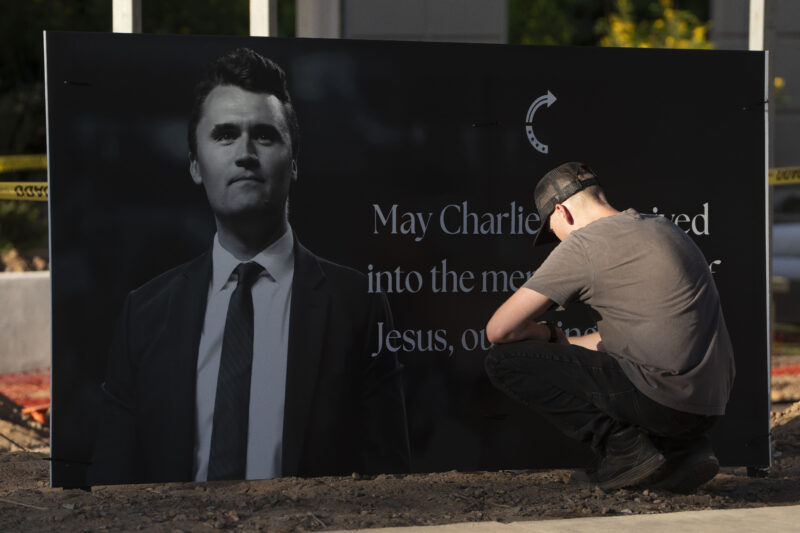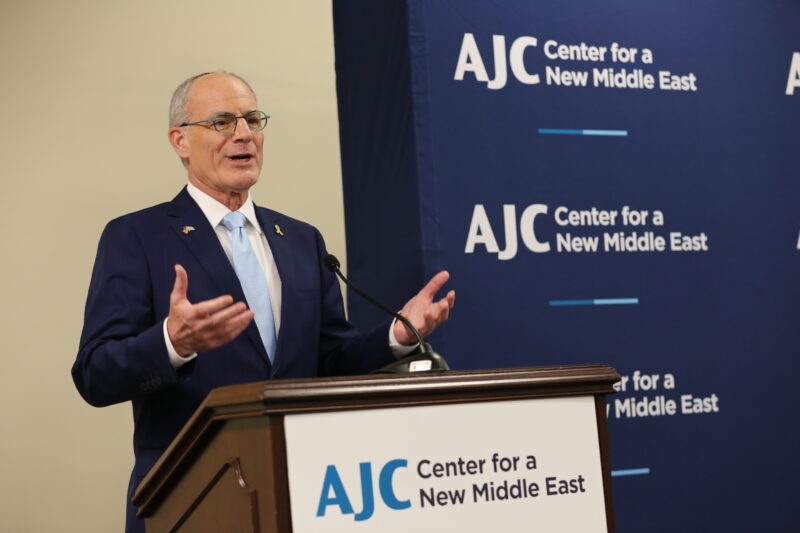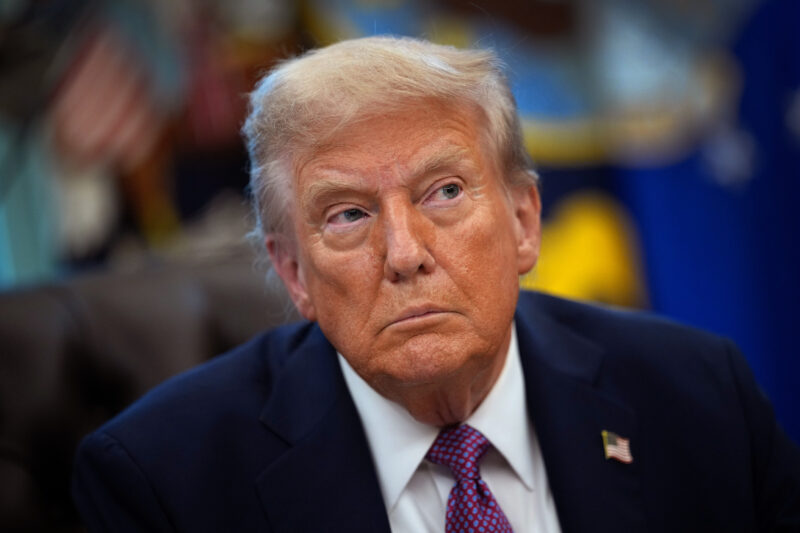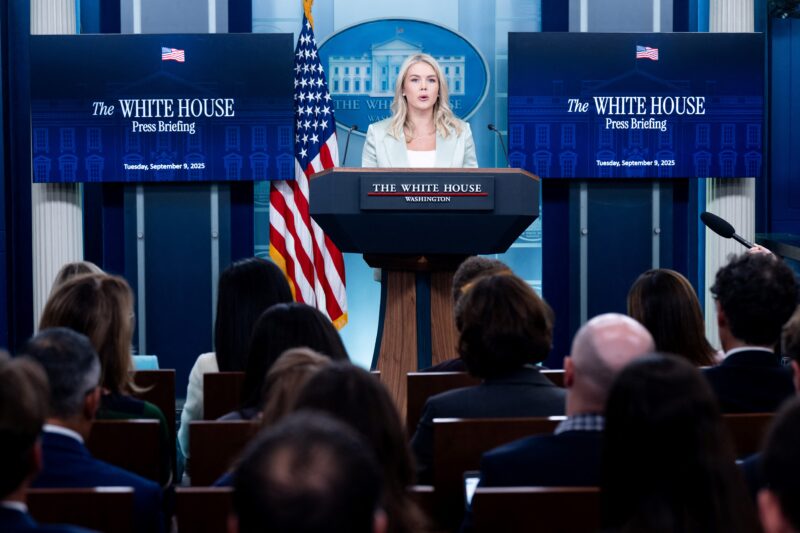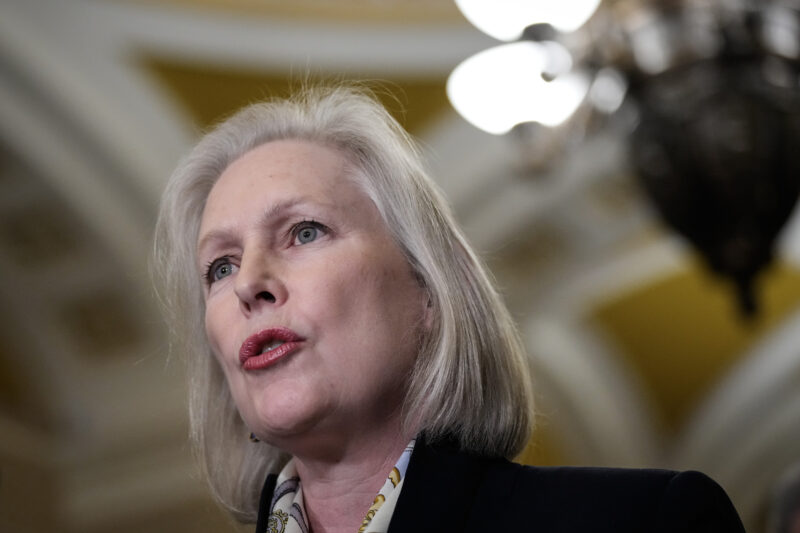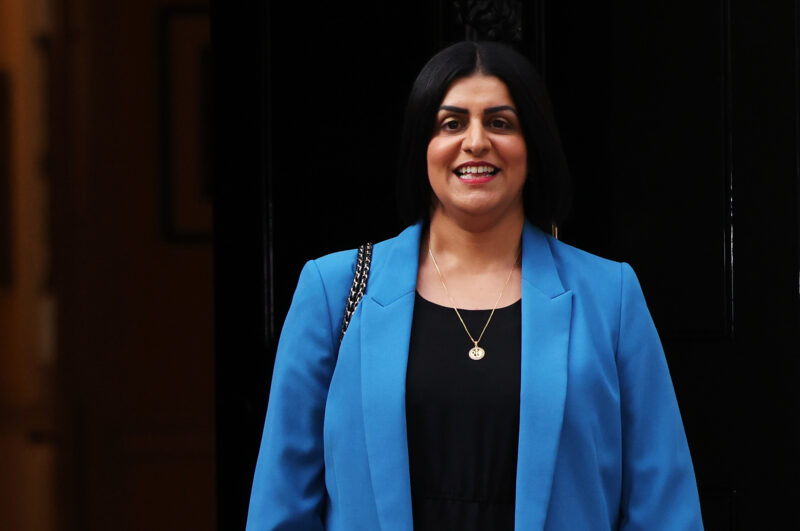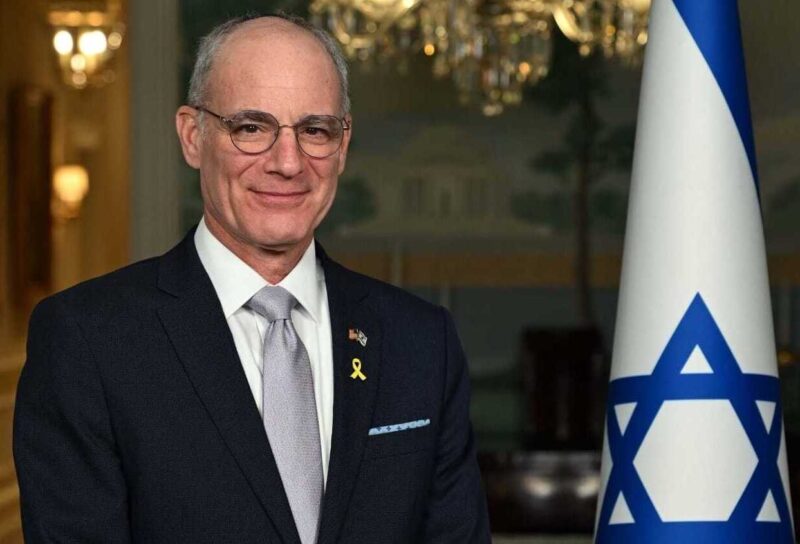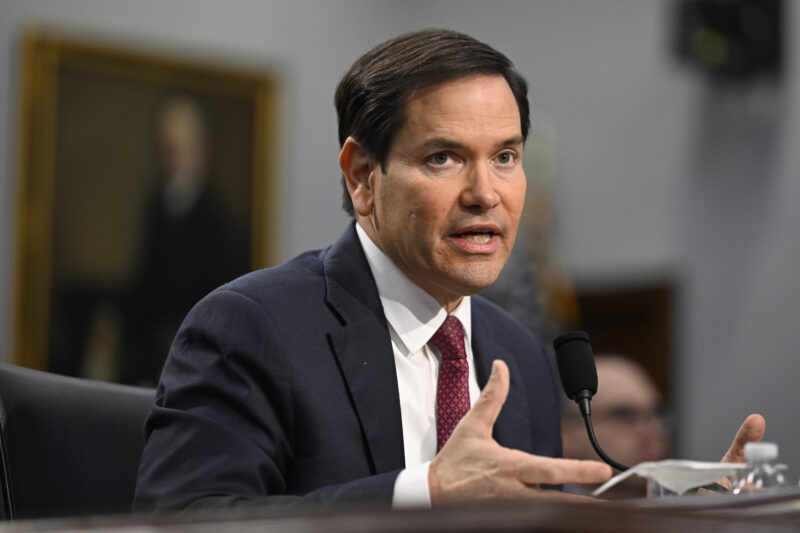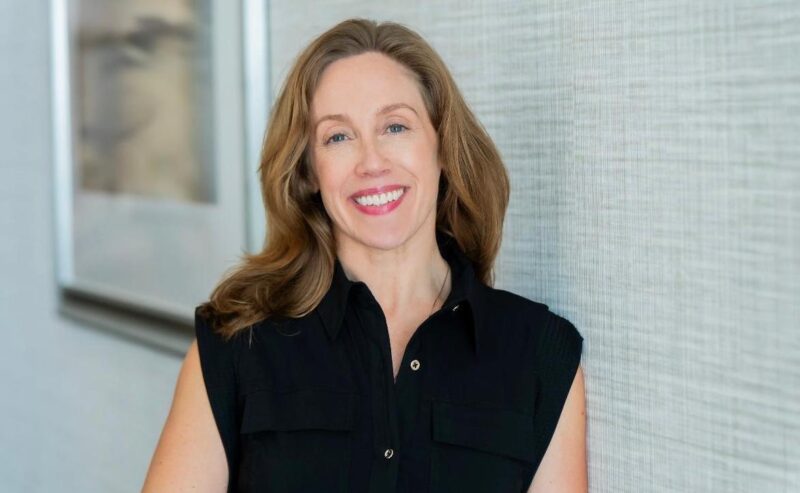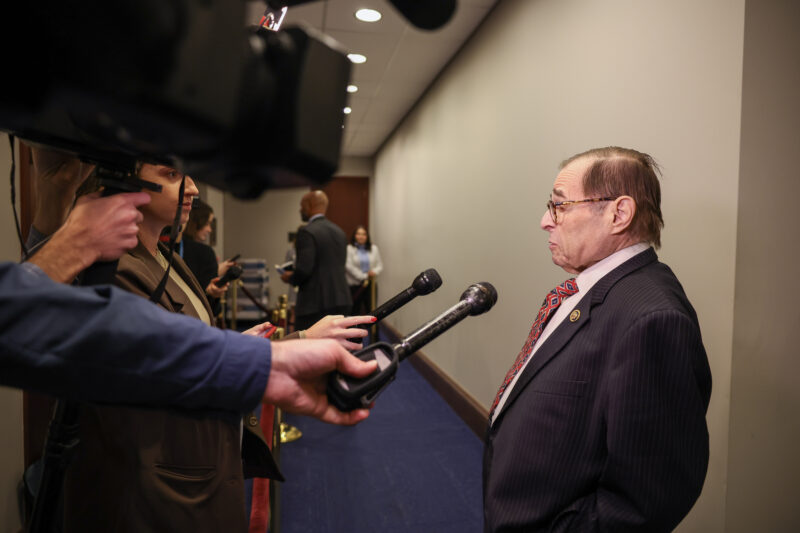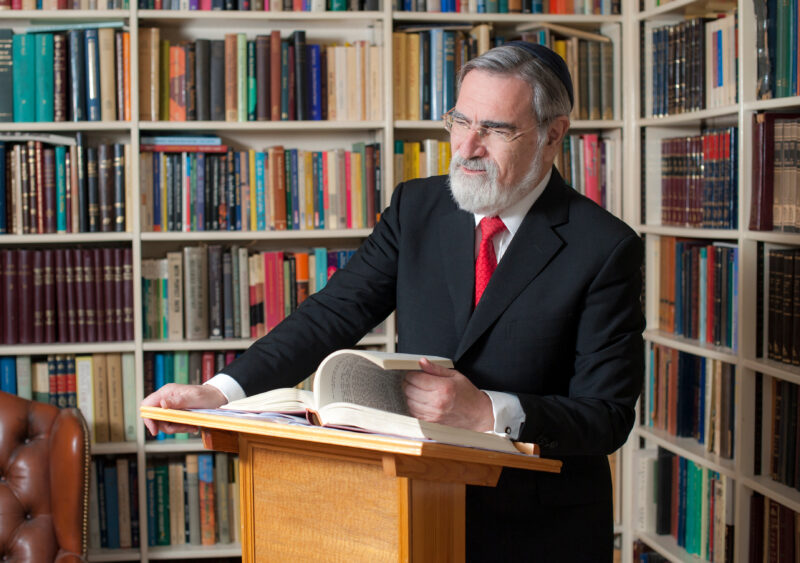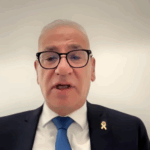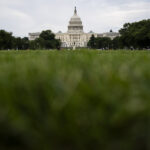Rep. Brad Schneider said the UAE ‘has made clear’ that Israeli moves toward annexation of the West Bank could cause the ‘cleaving’ of the Abraham Accords
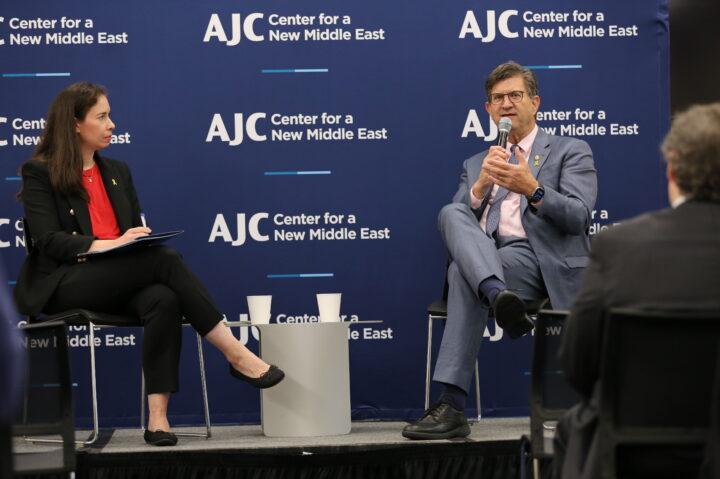
Martin H. Simon/AJC
Rep. Brad Schneider (D-IL) speaks at AJC's Abraham Accords 5th Anniversary Commemoration on Capitol Hill in Washington on Sept. 10, 2025.
Two senior pro-Israel House Democrats, who are co-chairs of the House Abraham Accords Caucus, warned on Wednesday that any moves that would prevent the ultimate establishment of a two-state solution could endanger the survival of the Abraham Accords.
Rep. Brad Schneider (D-IL) said at an American Jewish Committee event in Washington that his concerns about Israeli movements toward annexing the West Bank remain. Israel agreed to put those moves on hold five years ago when it sealed the Abraham Accords with the United Arab Emirates. Schneider said that any attempt at a one-state solution would create a permanent violence and conflict.
“Jump ahead five years, there are still folks in Israel who are again talking about annexation,” Schneider said. “The UAE has made clear that if Israel goes down that path it has the likelihood — not the possibility, but the likelihood — of cleaving the Abraham Accords to such a point that they may not be recoverable.”
At the same time, Schneider said he also opposes moves by European countries to unilaterally recognize a Palestinian state.
“Recognizing a Palestinian state before the elements necessary to be successful as a state — the institutions, having elections, having responsive government, having control of all security under one authority — it’s not there yet,” Schneider said. “To even be talking about recognizing a Palestinian state before other steps have been taken, giving the perception [to Israelis] of rewarding the actions of Hamas on Oct. 7, that creates a dynamic that is also a threat.”
He said that the U.S. should be offering “more robust leadership” to sideline “extremists” and “maximalists” on both sides.
Rep. Debbie Wasserman Schultz (D-FL) similarly said at the AJC event that “we are at a crossroads with the Abraham Accords” and warned that “progress could be squandered by any steps that permanently foreclose a two-state future.”
“We should seize diplomatic opportunities to expand the Abraham Accords and think carefully before taking any actions that would cause setbacks,” she continued.
She noted that a key threat to the Abraham Accords is that acceptance of those agreements has not filtered down from the government into the public in the Arab states that have normalized relations with Israel — which in many places continue to hate Israel and would not mourn the death of the Abraham Accords.
“Making sure that we are fostering those dialogues and being able to have that harmony and those relationships seep deeper down into society will make it easier and take the pressure off of those leaders to issue statements that some of them issued after Oct. 7 that were less than condemnation and that were even worse than that,” Wasserman Schultz said.
The Florida lawmaker also said that the U.S. and its partners should pursue “near-term openings with countries like Mauritania and with Azerbaijan,” countries that already have ties with Israel, to bring them into an “[Abraham] Accords Plus framework,” as well as continue “patient, serious tracks of engagement with Saudi Arabia, Indonesia and Oman.”




